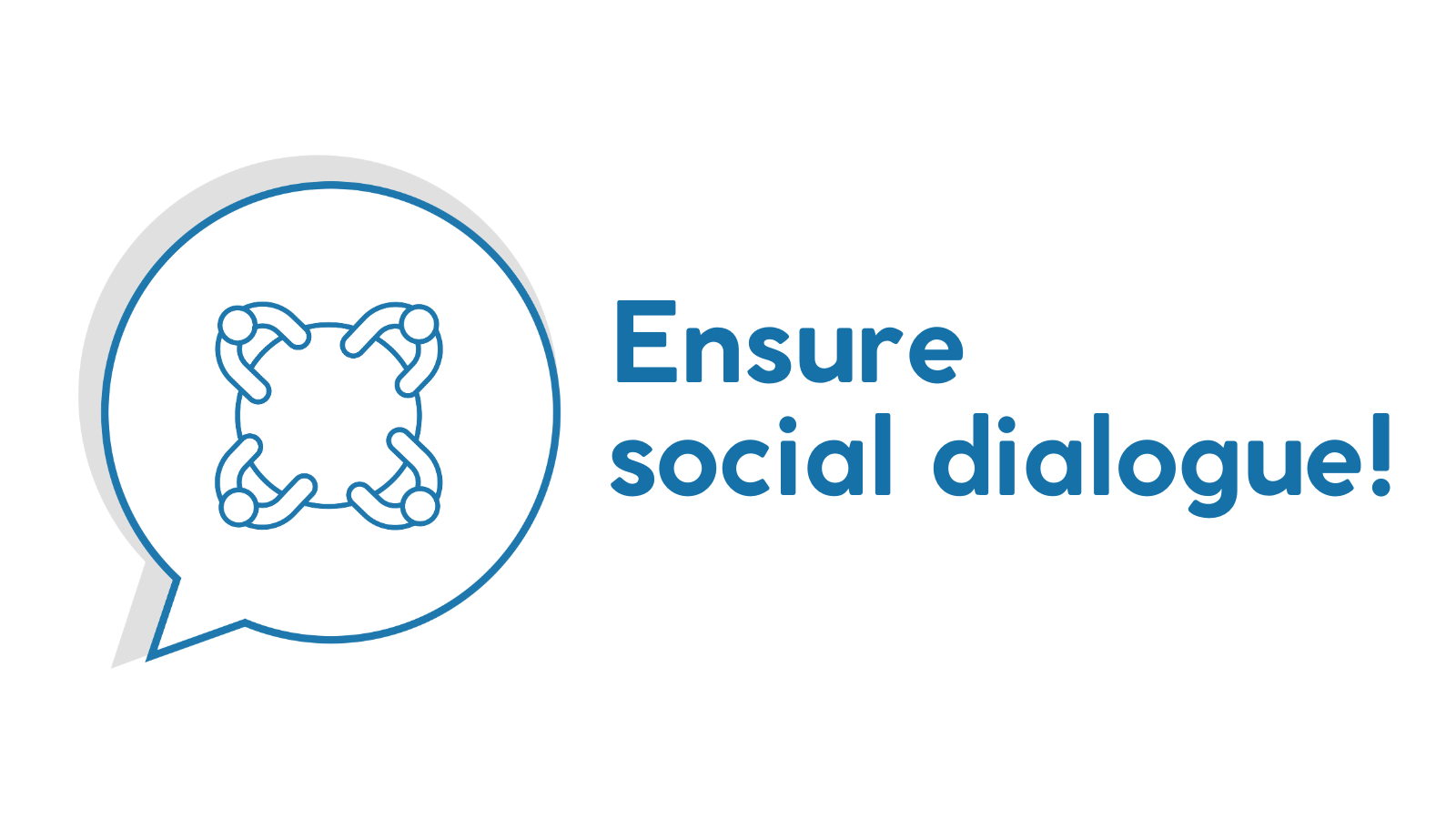
Strengthening Social Dialogue to Improve the Teaching Profession
Effective Social dialogue and collective bargaining are vital for sustainable employment and quality education.
Social Dialogue plays a crucial role in the relationship between decision makers and teachers, other education personnel, and their trade unions. ETUCE’s Campaign “Make Teaching Attractive” encourages decision makers in each country to engage in social dialogue with education trade unions which are the voice of the teachers, academics and other education personnel. In this month of October of the ETUCE Campaign focuses on Social Dialogue therefore governments, education authorities and employers in education should be on guard and listen to the ones who shape the future society. Education influences all aspects of our life. Quality education and the well-being of our children should be in everybody’s interest. No country can enhance and develop well without good education. Therefore teachers should be respected and valued with decent working conditions. Despite that, the attractiveness of the teaching profession is not recognised enough and the teachers face heavy workloads, low salaries in many countries, and are exposed to high work-related stress. ETUCE cares about the future of education professionals and quality education in Europe and therefore demands meaningful and effective social dialogue.
Social dialogue encompasses a range of activities that are pivotal in enhancing the status and overall attractiveness of the teaching profession. Education trade unions engaging with employers and governments on employment and professional issues in the sector, information sharing, communication, consultation, collective bargaining, and collective agreements are all integral components of effective social dialogue. These key elements are crucial in ensuring sustainable, quality employment, decent working conditions, decent pay and pensions and fair incentives for teachers and other education professionals.
Education trade unions have a dual role. They address on the one hand the employment, working conditions and pay issues as well as professional issues related to the content of education sector.
Indeed, ETUCE's experience reveals that the scope of social dialogue has expanded significantly in many countries, addressing a broader range of issues. Collective agreements now encompass matters such as health and safety, training, grievance and arbitration procedures, discrimination in employment, as well as affirmative action measures for women or minority groups.
Education trade unions play a significant role in safeguarding the rights of education workers in improvinge their working conditions and professional support. While fair pay remains a fundamental issue, ETUCE emphasizes that the nature of the work and the factors that influence it are equally important.
In the policy paper “Raising the Status and improving the Attractiveness of the Teaching Profession”, ETUCE member organisations have committed to enhancing social dialogue and collective bargaining at various levels, aiming to increase public funding for education, ensure equal access to quality education, elevate the status of teachers, and improve the image of the teaching profession in society. Furthermore, they aim to provide various means of professional support to education personnel and promote teachers' professional development.
Education trade unions work in different contexts at national, regional, and local level While a few member organisations report “good” social dialogue across all levels, the majority express dissatisfaction and note a significant deterioration.
To strengthen social dialogue, ETUCE emphasises the importance of unhindered trade union action without fear of legal reprisals, workplace sanctions, union busting actions, or the creation of “yellow unions”. The freedom of trade unionists to engage in collective action, mobilisation, denunciation, and resistance is fundamental to securing social and civil rights.
In conclusion, the promotion of social dialogue and collective bargaining is deemed critical by ETUCE to ensure the sustainability of the teaching profession and the delivery of quality education. As education personnel face evolving challenges, fostering a collaborative and inclusive dialogue is essential to address these issues and elevate the profession to greater heights.